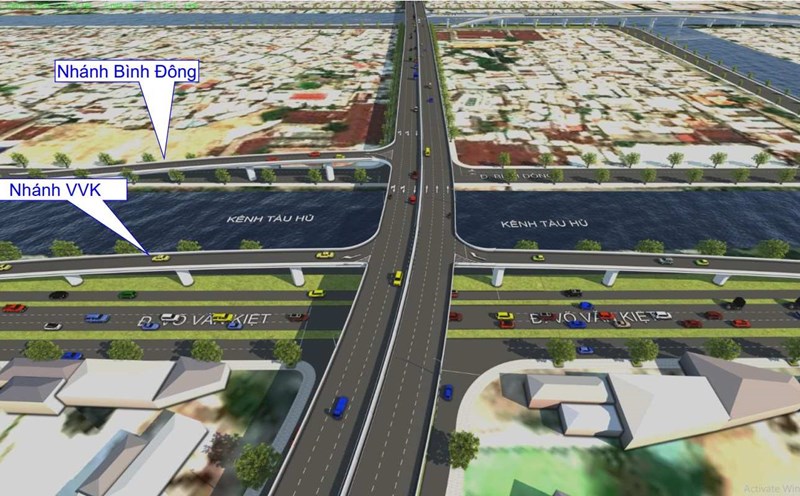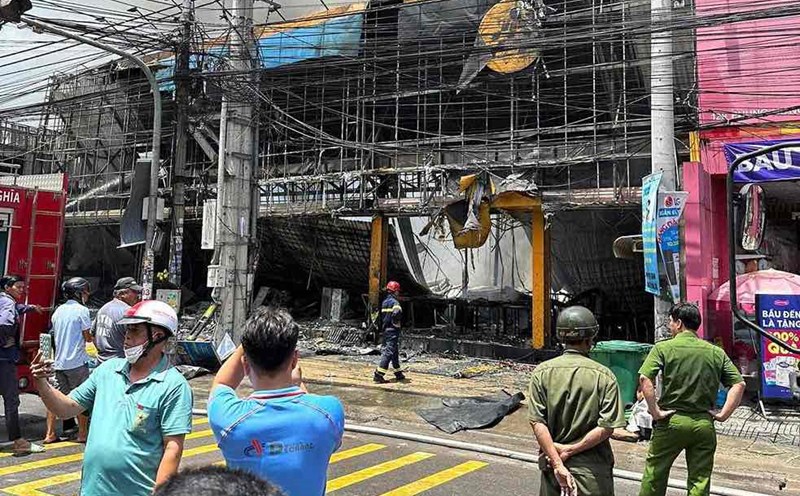Increasing responsibility and authority for localities
The State Budget Law No. 89/2025/QH15, passed by the National Assembly on June 25, 2025, marks a major reform in public financial management, focusing on strong decentralization and improving autonomy and accountability of each level of government.
One of the highlights is that localities have the right to proactively adjust estimates, use increased revenue and expenditure savings according to their authority without having to wait for approval from superiors as before. This regulation not only reduces administrative procedures, but also creates conditions for localities to be more proactive in budget management.
The Law also clearly establishes the role of local governments in the entire budget cycle, from making estimates, allocating, organizing implementation to inspection and supervision. The mechanism for dividing revenue between the central and local levels for items such as land use fees, land rents, profits from state capital in enterprises, etc. is determined transparently, creating a stable foundation for multi-level financial management.
In particular, localities are allowed to use financial reserve funds to advance for urgent projects, with a maximum limit of 50% of the balance at the beginning of the year and a repayment period of no more than 36 months. This is a new financial tool to remove bottlenecks in public investment disbursement, ensuring the progress of key projects in the locality.
Prioritizing science, technology and innovation
The 2025 State Budget Law provides a separate management mechanism for the fields of science, technology, innovation and digital transformation, with the process of making estimates and organizing expenditures simplified, applied from July 1, 2025.
Instead of going through many intermediary approval steps, budget-using units only need to send payment requests in the estimate to the State Treasury to make spending. The Ministry of Science and Technology will be responsible for issuing norms and guiding spending in accordance with the characteristics of research, development and innovation activities.
Along with that, the law also adjusts the decentralization of spending tasks between the provincial and commune levels in the above fields, to ensure compliance with the management capacity and development orientation of each locality.
Regarding the process of budget preparation, implementation and finalization, the State Budget Law 2025 shortens the time for review and examination. Specifically, the settlement adjustment period ends on January 31 of the following year. Commune-level budget estimates must be approved before March 31, provincial budget estimates before July 1, and the central budget submitted to the National Assembly for approval no later than 12 months after the end of the fiscal year.
The settlement reports of budget-using units must be accompanied by explanations and assessments of the effectiveness of task implementation, closely linking budget expenditure with output results. The law also clearly stipulates the responsibility of the head of the unit in reviewing and being responsible for budget settlement; handling expenditures that are not in accordance with the regime even after being approved.
Some contents such as temporary budget allocation, allowing up to 30% of next year's estimate to be advanced for urgent project implementation are also notable new points, contributing to improving flexibility in budget management.
According to the Ministry of Finance, this draft Law has been studied and developed to closely follow and institutionalize the policies and orientations of the Party and State, especially the conclusion of General Secretary To Lam on promoting breakthroughs in the development of science, technology, innovation and digital transformation; reorganizing the apparatus of the political system and continuing to innovate the mechanism of decentralization of management and allocation of state budget to ensure the leading role of the State budget and proactively participate in the state budget.
At the same time, thoroughly grasp the motto of which level, which agency is most effective and timely, and assign it to that level or agency to implement; locality decides, locality does, locality is responsible; cut and simplify processes and procedures in the work of making estimates, implementing and finalizing state budget regulations; amend and abolish regulations that are still contradictory, causing difficulties and obstacles, urgent requirements to be revised to remove bottlenecks, in accordance with reality, creating favorable conditions for investment, production and business activities; promote economic growth and international integration.
The Ministry of Finance believes that Law No. 89/2025/QH15 is a solid legal basis, creating new momentum to improve the efficiency of management, allocation and use of state budget; enhance publicity and transparency; ensure national financial discipline and order, contributing to promoting rapid and sustainable socio-economic development in the new period.











